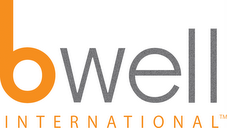Published in "New York Business Group on Health Newsletter"
Volume 29, Issue 2, Fall 2006Meet a Member—bWell International, Inc.New York Business Group on Health recently spoke with Philip Micali, founder and CEO of bWell International, Inc.
Given the changing healthcare market place, how does your company help in easing the transition?bWell was founded to help consumers gain more confidence about their health coverage and lifestyle decisions. Fundamentally, bWell links and forecasts consumer health assets with personal wealth assets over time (multiple years.) The company’s vendor-neutral interactive and personalized consumer learning tools enable individuals to gain more confidence about making health/insurance coverage decisions and lifestyle decisions.
Can you discuss specifically how health benefits are becoming more focused on the consumer?Health benefits are becoming much more flexible and focused on wellness. Benefit plans are also more complex and difficult to understand because it is not enough to evaluate a health benefit plan in one-year increments. In addition, financial incentives are being paid to consumers who participate in healthy behaviors. This is a major departure from the defined benefit world of health benefits where a $10 copay was the only “skin in the game” that consumers had.
Also, health coaching has become the holy grail to changing consumer behavior in a way that can be sustained over time. Think about it: Did you learn algebra overnight? Did your fitness training take some time to sink in?
Can you describe how your company helps increase the quality and/or reduce the costs of providing healthcare?bWell’s consumer learning tools improve quality and appropriateness by providing vendor-neutral education before the health plans come in and ‘sell’. I am a firm believer that consumer understanding and education must precede the ‘sale’ by the health plan to buy their coverage, even when there is only one health plan option. The integration of a thorough health and well being assessment (aka “health risk assessment”) within our learning tools enhances quality by making individuals aware of their personal health assets and how to manage them over time as aging occurs.
bWell drives cost savings as a result of its emphasis on vendor neutral understanding and education around the cost of ownership of various health plan options, along with the understanding of personal health and well-being assets. The consequences of implementing our products are direct claims cost savings, as well as higher productivity in the workforce -- the result of consumer awareness of the targeted areas of their health that require attention. As more people are aware and feel comfortable with Consumer Driven Health Plan options, including Health Savings Account models, employers can expect a halving of the recent historical double digit percentage medical claims trend. This represents substantial cost savings for all size employers.
What should a company look for when choosing a consumer education and learning tool firm?Companies should look for health plan vendor neutrality and integration of health asset algorithms with wealth asset forecasting tools. In addition, incorporating plan suitability based upon consumer readiness for change is very important. We are talking about overcoming some emotional barriers to change. A firm should understand how an education service/tool synchronizes benefit plan branding with corporate values and brand. This serves to maximize the potential that messages are heard and acted upon.
How does NYBGH membership benefit your company?bWell has been a member of NYBGH since its inception in 2004. I am personally very active in the Health Benefits Advisory Group. I find the participation and content of the NYBGH to be very stimulating and the ideal forum for a healthy debate about the proposed solutions to our ailing healthcare system.
